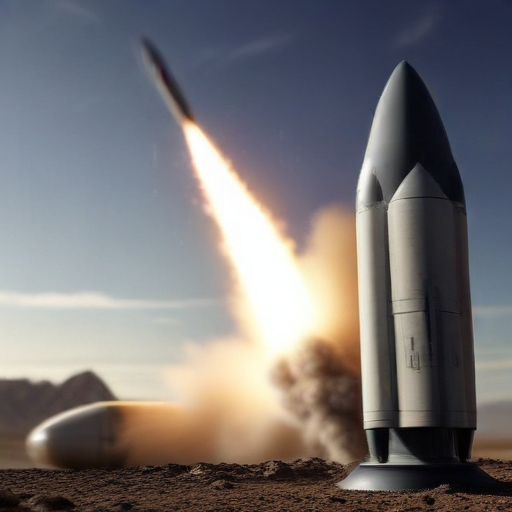Russian President Vladimir Putin issued a stark warning to Western nations supporting Ukraine with military supplies, stating that he has ordered the use of a new intermediate-range ballistic missile in response to Ukraine’s recent strikes within Russian territory using longer-range arms supplied by the U.S. and the U.K. In a televised address, Putin described the missile strike as a “test” of this new weapon, emphasizing Russia’s right to retaliate against countries that provide military support to Ukraine.
According to Deputy Defense Department press secretary Sabrina Singh, this missile is an experimental variant based on the RS-26 Rubezh intercontinental ballistic missile, representing a new lethal capability integrated on the battlefield. Singh indicated that the U.S. was informed of the imminent missile strike through established communication channels designed for nuclear risk reduction.
Putin warned that Russia could also target countries that allow their arms to be used for attacks against Russian facilities. He asserted, “We believe that we have the right to use our weapons against military facilities of the countries that allow to use their weapons against our facilities.”
The utilization of intermediate-range missiles, which can carry conventional or nuclear warheads and have a range of up to 3,500 miles, serves as a clear message to Ukraine and its NATO allies. Analysts suggest this action signifies both an escalation in rhetoric and a strategic move from Moscow amid ongoing conflict, which has now surpassed 1,000 days.
In a concurrent development, Ukrainian forces have begun utilizing their first long-range missiles provided by Western allies to strike targets in Russia. This significant shift in Ukraine’s military strategy comes as the U.S. continues to support Ukraine with air defense systems and military hardware.
Despite the escalating tensions and rhetorical bravado from the Kremlin, U.S. officials have expressed skepticism regarding the effectiveness of these threats. They believe that Russia’s attempts to intimidate Ukraine and its allies will not affect the ongoing support for Kyiv, asserting, “It will not be a game changer in this conflict.”
Putin’s recent changes to Russia’s nuclear doctrine, which lowers the threshold for nuclear weapon use, have been dismissed by Western officials as mere saber-rattling. Analysts indicate that the chance of nuclear weapon deployment remains low, especially as Russian forces regain momentum on the battlefield and make territorial gains in the conflict.
This situation highlights the ongoing complexities of the conflict in Ukraine, where diplomatic and military dynamics continue to evolve. The West’s continued support for Ukraine, paired with caution about Russia’s nuclear posturing, emphasizes the enduring hope for a resolution to the conflict that could restore peace and stability in the region.
Overall, while the potential for escalation remains a concern, the support for Ukraine and a strategic focus on diplomatic solutions could pave the way for eventual peace in the region.
